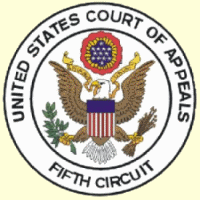March
2014
Fifth Circuit Holds CGL Policy Does Not Cover Completed Operations
Last month, the United States Court of Appeals for the Fifth Circuit found that the U.S. District Court for the Southern District of Mississippi erred when it determined that a subcontractor’s insurer had a duty to defend the general contractor as an additional insured under its commercial general liability (CGL) insurance policy. The Fifth Circuit held that, while claims for liability under a CGL policy can be brought after ongoing operations are complete, the underlying liability cannot be due to the completed operations. Carl E. Woodward, LLC v. Acceptance Indemnity Ins. Co., No. 12-60561 (5th Cir. Feb. 11, 2014).
In November 2005, concrete subcontractor DCM Corporation, LLC (“DCM”) obtained a CGL policy from Acceptance Indemnity Insurance Co. (“Acceptance”), naming general contractor Carl E. Woodward, LLC (“Woodward”) as an additional insured, in connection with the construction of condominiums on the Mississippi Gulf Coast. DCM worked on the project from January 2006 to October 2006, and the entire project was completed in August 2007. Over a year later, the purchaser of the condominiums sued the seller and Woodward. The seller filed cross-claims against Woodward, alleging faulty construction and damage arising out of construction.
Although Woodward sent Acceptance a copy of the complaint and an expert report stating conclusions about the nature and effect of defective work done by DCM, Acceptance refused to defend based on policy language limiting coverage to “liability arising out of [DCM’s] ongoing operations performed for [Woodward].” Though not quoted in Acceptance’s denial letter, the policy endorsement making Woodward an additional insured also excluded from coverage property damage occurring after “[a]ll work . . . to be performed by or on behalf of the additional insured(s) at the site of the covered operations has been completed.” In resulting litigation, the District Court concluded that Acceptance had a duty to defend Woodward in an arbitration regarding the faulty construction claims. However, the Fifth Circuit reversed.
On appeal, the Fifth Circuit held that claims for liability under a CGL policy need not be alleged during ongoing operations. In other words, claims need not be asserted in litigation or otherwise during the named insured’s ongoing operations to fall within the scope of coverage. Nonetheless, the Court held, “the underlying liability cannot be due to ‘completed operations.’” In support of its conclusion, the Court noted that allowing coverage based on an allegation that the additional insured failed to follow plans and specifications would effectively transform the CGL policy into a performance bond. Because Woodward’s liability arose out of DCM’s completed operations, rather than DCM’s ongoing operations, Acceptance had no duty to defend under the CGL policy.
To Read More on Carl E. Woodward, LLC v. Acceptance Indemnity Ins. Co. click here




